Business
Napster sold for $207million over 20 years after shutting down
Published
1 week agoon
By
Ekwutos Blog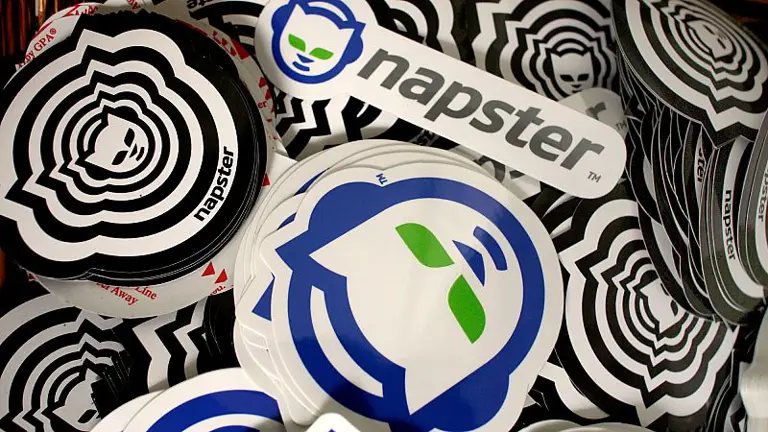
Napster, the brand notoriously connected to music piracy before reemerging as a subscription music service, has been sold to Infinite Reality for $207 million (€192m).
The tech startup announced it had bought Napster in hopes of transforming the streaming service into a social music platform where artists can connect with fans and better monetize off their work.
“The internet has evolved from desktop to mobile, from mobile to social, and now we are entering the immersive era,” said Napster CEO Jon Vlassopulos. “Yet, music streaming has remained largely the same. It’s time to reimagine what’s possible.”
Among its plans to update Napster, Infinite Reality said it will create virtual 3D spaces that will allow fans to attend concerts, and give musicians or labels the ability to sell digital and physical merchandise.
Artists will also receive a wider range of metrics and analytics to better understand the behavior of platform users.
“We can think of no better use case for our technology than putting it in the hands of music artists who are constantly pushing the boundaries of what’s possible,” said Infinite Reality Chief Business Officer Amish Shah.
Napster was launched in 1999 by Shawn Fanning and Sean Parker and quickly became the first significant peer-to-peer file-sharing application. It kicked off a wave of pirating software and applications, later followed by the likes of LimeWire.
Napster filed for bankruptcy in 2002 and was shut down after the record industry and rock band Metallica sued over copyright violations. Rhapsody later bought the brand in 2011 and relaunched it as a music streaming service.
You may like


Comparing Liverpool’s record with and without Trent Alexander-Arnold
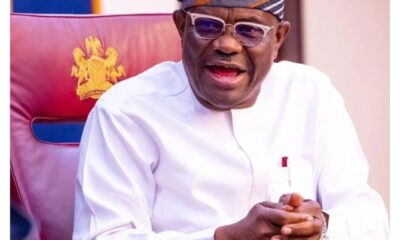

Wike approves first batch of 34 new resident doctors for FCTA hospitals
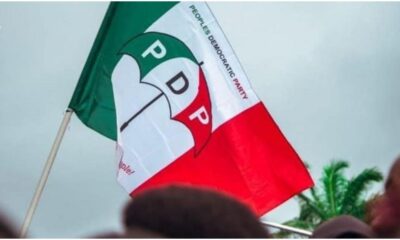

PDP chieftains in Katsina announce coalition to challenge APC in 2027
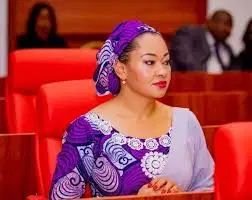

My Sallah visit was not a campaign – Akpoti-Uduaghan refutes claims
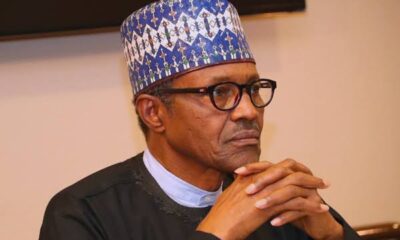

Former President Muhammadu Buhari sends his heartfelt condolences to the family of the of Alhaji Abbas Sunusi, Galadiman Kano, who passed away yesterday.
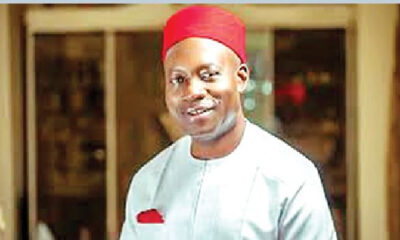

Anambra: Soludo unveils security supervisory committee
Business
NNPC: NAPE backs Tinubu on Kyari sack, Ojulari appointment
Published
4 hours agoon
April 2, 2025By
Ekwutos Blog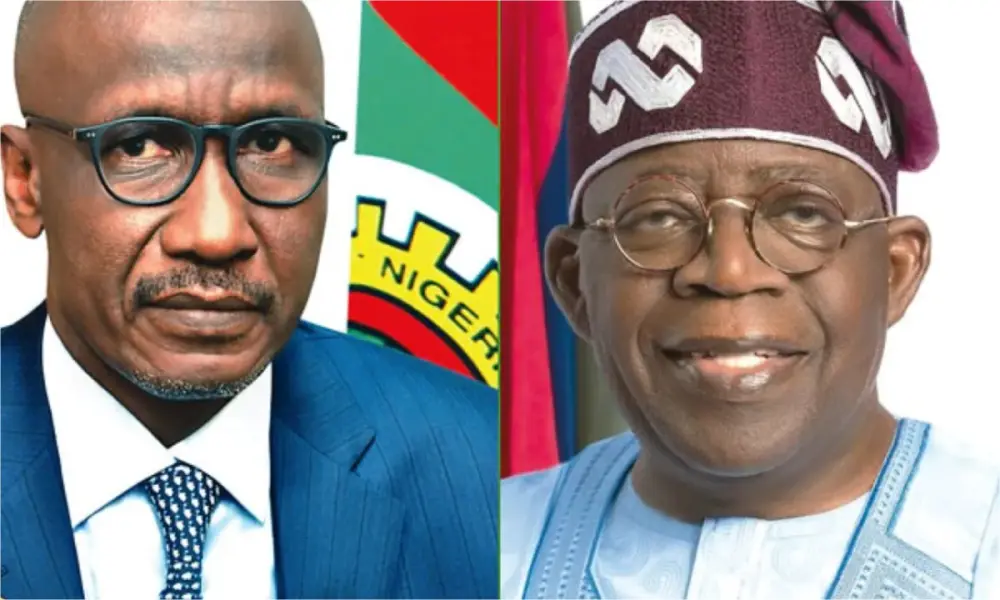
The Nigerian Association of Petroleum Explorationists has backed President Bola Ahmed Tinubu for the new Nigerian National Petroleum Company board appointment.
The president of NAPE, Johnbosco Uche, disclosed this in a statement on Wednesday.
Ekwutosblog reports that Tinubu removed the NNPCL chairman, Pius Akinyelure, and the GCEO, Mele Kyari, on Wednesday.
Reacting, NAPE noted that the appointment of Bayo Ojulari as group chief executive officer and Ahmadu Musa Kida as non-executive chairman of NNPCL is a bold step towards repositioning the oil and gas industry for greater efficiency, transparency, and profitability.
“The Nigerian Association of Petroleum Explorationists wishes to express its profound appreciation to President Bola Ahmed Tinubu for the recent appointment of a new board and management team for the Nigerian National Petroleum Company Limited.
“We are confident that the new team will bring the necessary expertise and experience to drive the oil and gas sector forward,” the association said.
Business
Why Aussie consumers could soon be paying DOUBLE for beef
Published
8 hours agoon
April 2, 2025By
Ekwutos Blog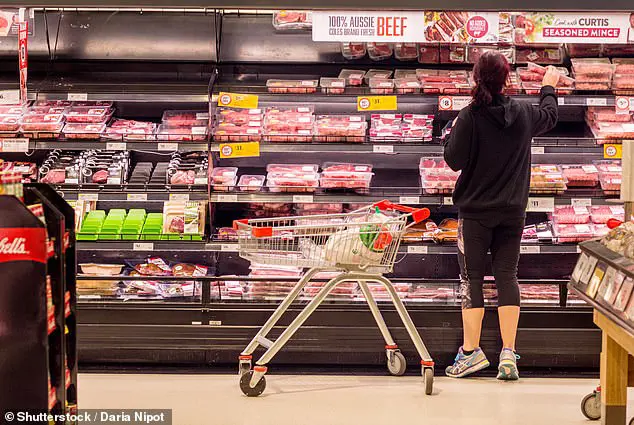
- Small-scale farmers warning of $56/kg rump steaks
- PODCAST: Trump round three, Musk’s breakup with DOGE – and former Denmark ambassador on the ‘smartest thing’ Greenland can do. Listen here
Australian consumers could end up paying more than $50 a kilo for steak at the supermarket as a result of Donald Trump‘s tariffs on agriculture exports, farmers say.
A kilogram of rump steak at Woolworths is now selling for $28.
But the Australian Food Sovereignty Alliance, representing 350 small-scale farmers, fears rump steak will end of costing Australian consumers $56 at the supermarket.
Spokeswoman Tammi Jonas, an organic beef cattle producer from Daylesford in Victoria, said the American tariffs on agricultural imports would see more countries buy Australian beef to avoid trading with the US.
‘We already know there’s high demand for Australian beef around the world and I think that’s just going to get higher,’ she told Daily Mail Australia.
‘In a global supply crunch like this, we could see rump steak climb past $50 per kilogram.
‘That’s not a family dinner – that’s a premium luxury.’
Dr Jonas said higher export prices would see less Australian meat sold to domestic consumers.
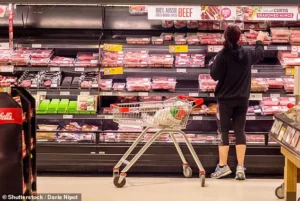
Australian consumers could end up paying more than $50 a kilo for steak as a result of Donald Trump ‘s tariffs on agriculture exports, farmers say (pictured is a Coles supermarket)
‘I would say there’s a strong likelihood of that, yes,’ she said.
‘And even if we still have enough beef sold within Australia, the prices are certain to go up.
‘Whenever you’re in those global markets, you roll with the volatility and if they can get a really high price overseas, they’re not going to charge less for domestic sales.’
But Angus Gidley-Baird, a senior analyst in animal protein with RaboResearch, said more expensive steak at the supermarket was unlikely, given the strong supply of Australian beef with the recent rainfall.
‘We produced record volumes of beef last year, I don’t see why there would be a shortage in the domestic market that would cause prices to rise,’ he told Daily Mail Australia.
‘The exports are effectively our markets that we sell the additional production into.’
Meat and Livestock Australia data showed the US was Australia’s biggest market for beef exports in 2024, putting it well ahead of Japan, South Korea and China.
Of the beef sent to the United States, 96 per cent of it was the leaner, grass fed variety that was either chilled or frozen.
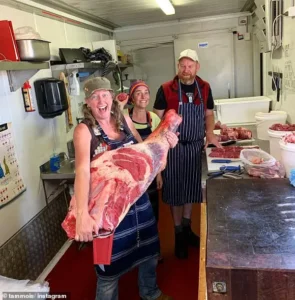
The Australian Food Sovereignty Alliance fears rump steak will end of costing Australian consumers $56 at the supermarket. Spokeswoman Tammi Jonas (left) said the American tariffs on agricultural imports would see more countries buy Australian beef to avoid trading with the US
The Americans have been in the grip of a drought, and most of their beef is fattier, grain-fed.
South American beef exporters Argentina and Brazil are also dealing with a lack of rainfall, which means demand for Australian beef would continue to be strong.
Mr Gidley-Baird said the Americans, who produced fattier, grain-fed beef, would still need the leaner, Australian grass-fed beef to make hamburger patties, regardless of import tariffs.
‘The US still continues to need imported product because they’re not producing as much themselves,’ he said.
‘They’ll still need Australian beef – the drought, it’s getting better in the US but they’ve liquidated their herd and production volumes are down.
‘What Australia sends to the US complements their production system over there in that it balances out the fatter product they’re producing for hamburger production.
‘They need the product and we’re one of the biggest suppliers of it – me being rational would still say that they would still buy it.’
At the margins, strong American demand for grass-fed beef had pushed up prices for Australian lean mince, now selling for $15.50 a kilo at Woolworths.
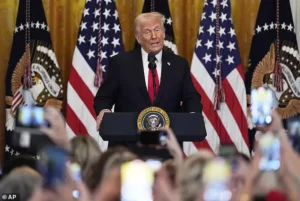
The Trump Administration’s tariffs of up to 25 per cent on agricultural imports are coming into affect on Thursday, along with tariffs on pharmaceutical products (President Donald Trump is pictured in the White House)
‘The US market has been very strong – it’s demanding a fair amount of product which is putting a bit of pressure on mince prices, lean product prices,’ Mr Gidley-Baird said.
The Australian Food Sovereignty Alliance sees mince prices more than doubling to $36 a kilo.
But Dr Jonas predicted possible tariffs of up to 25 per cent on Australian beef would see American demand plunge, despite the fact they are in drought with an undersupply of grass-fed beef.
‘I think with a 25 per cent tariff they won’t be able to afford it – Americans are in as big a cost-of-living crisis as Australians are and they can’t handle a 25 per cent tariff on top of the higher meat price of imported Australian beef,’ she said.
The Australian Food Sovereignty Alliance didn’t do specific economic modelling on Australian beef prices, as a result of the Trump tariffs on agriculture coming into effect on Thursday.
But it argued China’s African swine flu in 2019 led to a doubling of pork prices, as supply fell by 40 per cent.
The alliance campaigns against agribusiness giants like JBS Foods Australia, which owns feedlots and abattoirs.
‘The local farmers like us are losing access to the facilities to slaughter,’ Dr Jonas said.
‘While that sounds like a good thing for Australia – when we think, “We can export more” – the reality of that is very few people profit from that higher export.’
The Trump Administration’s tariffs of up to 25 per cent on agricultural imports are coming into effect on Thursday, along with tariffs on pharmaceutical products.
‘If it’s a large tariff but applied to everyone, our competitive position remains the same,’ Mr Gidley-Baird said.
They follow 25 per cent tariffs on steel and aluminium, introduced on March 12.
Business
BREAKING: Tinubu sacks NNPCL CEO, Mele Kyari, appoints Bayo Ojulari
Published
13 hours agoon
April 2, 2025By
Ekwutos Blog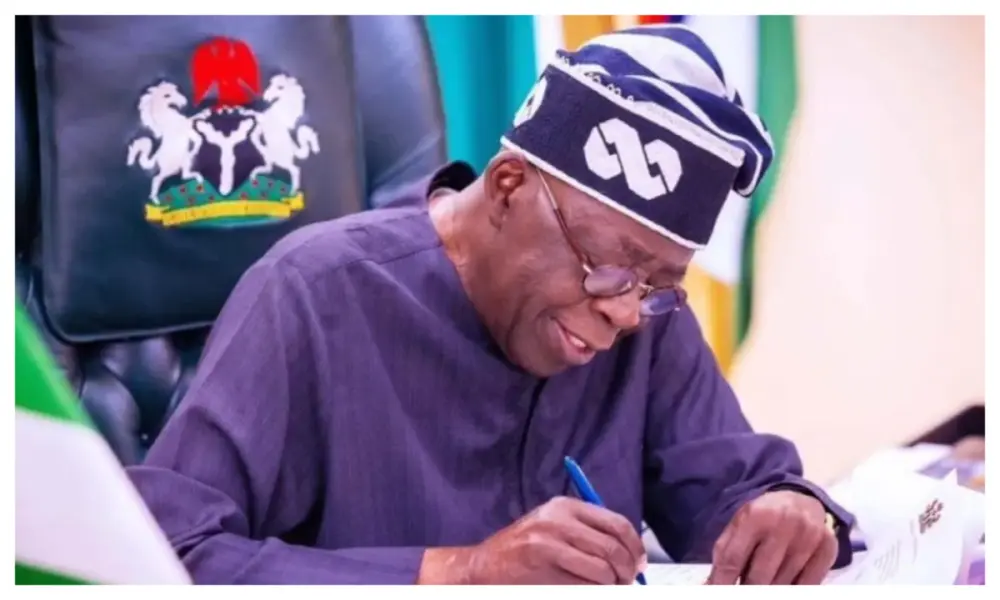
President Bola Tinubu has sacked the Group Chief Executive Officer (CEO) of the Nigerian National Petroleum Company Limited, NNPCL, Mele Kyari.
Tinubu also dissolved its board, removing the Chairman, Chief Pius Akinyelure.
Bayo Onanuga, Special Adviser to the President on information and strategy, announced this in a statement on Wednesday.
Onanuga said Tinubu invoked his powers under section 59(2) of the Petroleum Industry Act (PIA) 2021 to carry out the sweeping reconstitution, citing the need for “enhanced operational efficiency, restored investor confidence, and a more commercially viable NNPC”.
He announced that Tinubu has now approved a new 11-man board, which has Engineer Bashir Bayo Ojulari as the Group CEO and Ahmadu Musa Kida as non-executive chairman.
According to the statement, “Adedapo Segun, who replaced Umaru Isa Ajiya as the chief financial officer last November, has been appointed to the new board by President Tinubu.
“Six board members, non-executive directors, represent the country’s geopolitical zones. They are Bello Rabiu, North West, Yusuf Usman, North East, and Babs Omotowa, a former managing director of the Nigerian Liquified Natural Gas( NLNG), who represents North Central.
“President Tinubu appointed Austin Avuru as a non-executive director from the South-South, David Ige as a Non-executive director from the South West, and Henry Obih as a non-executive director from the South East.
“Mrs Lydia Shehu Jafiya, permanent secretary of the Federal Ministry of Finance, will represent the ministry on the new board, while Aminu Said Ahmed will represent the Ministry of Petroleum Resources”.
He added said that all the appointments are effective today, April 2.

Comparing Liverpool’s record with and without Trent Alexander-Arnold

Wike approves first batch of 34 new resident doctors for FCTA hospitals

PDP chieftains in Katsina announce coalition to challenge APC in 2027
Trending

 Trending5 months ago
Trending5 months agoNYA demands release of ‘abducted’ Imo chairman, preaches good governance
- Business5 months ago
US court acquits Air Peace boss, slams Mayfield $4000 fine

 Politics5 months ago
Politics5 months agoMexico’s new president causes concern just weeks before the US elections
- Entertainment5 months ago
Bobrisky transferred from Immigration to FCID, spends night behind bars
- Entertainment5 months ago
Bobrisky falls ill in police custody, rushed to hospital

 Politics5 months ago
Politics5 months agoRussia bans imports of agro-products from Kazakhstan after refusal to join BRICS

 Politics5 months ago
Politics5 months agoPutin invites 20 world leaders
- Politics1 year ago
Nigerian Senate passes Bill seeking the establishment of the South East Development Commission.

